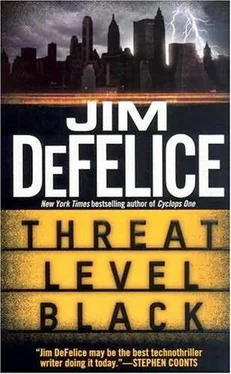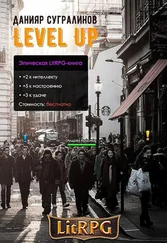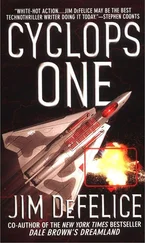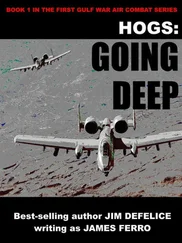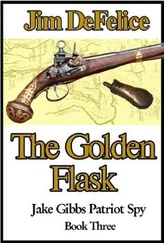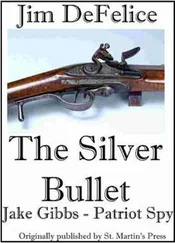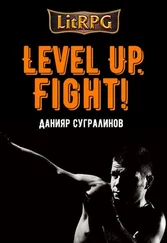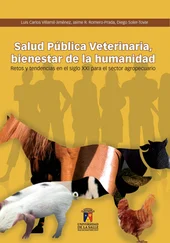“I’ll bet,” said Fisher, standing up.
“Jesus, Fisher, aren’t you grabbing the matchbooks?”
“Nah.”
“But you just said they were important.”
“No, I just pointed them out. Once upon a time, the person who lived here smoked. Or had access to a smoker.”
Kowalski pushed the coffee table a few inches from its spot and put it down with a thud. He picked up the matchbooks, which bore Marlboro logos.
“So he was a smoker,” said the DIA agent triumphantly. “All scumbags are.”
“Those are the landlady’s,” said Fisher. “And they’re at least five years old. Why do you think he shaved?”
The men working in the basement had several possible hits on two small saucers that had been placed near the boiler.
“Something like strychnine, probably,” one of the men told Fisher after they’d finished going over the place.
“Like strychnine.”
“We’re going to have to do tests back at the lab. But it makes sense. Rat poison. She had a rat problem, right? Or mice.”
“So you don’t really know what it was?”
“Not until the tests.”
“And you checked the sink?” asked Fisher.
“Cleaned thoroughly. Bleach.”
“Bleach?”
The expert pointed to a set of bottles under the large tub. “It all checks out. Clorox. We’ll double-check.”
Fisher walked to the back of the long, narrow room; there was an outside door leading to a small garden courtyard. A crime scene technician was just setting up to see if he could get prints from the door and doorknob.
“Mind if I go outside?”
“Hang on a second,” said the man.
Fisher stepped to the side, looking at the shelves of stacked flowerpots. There was a bag on the floor of potting soil.
“You check the dirt?” he asked the chemical expert.
“Yeah. It’s dirt.”
Fisher looked at the bag. Unlike the pots, it was very new.
“Could you use the dirt for lab work?” he asked the expert.
“Nah.”
Fisher took the bag with him outside. While there had obviously been a garden here once, it was now overgrown with weeds. He emptied the bag of dirt on the small strip of concrete once used as a patio next to the house.
“Whatcha looking for?” Macklin asked, coming out from the basement.
“Here he is, the Homeland Security commander himself,” said Fisher, “come to oversee the troops.”
“So, what are you doing?”
“I always like to find the dirt in a case,” said Fisher. He looked for something to sift through the soil with, but there was nothing nearby. He went back inside to the shelves where the pots were; an old watering can with tools sat on the floor. It was dark in the corner; he brought the tools out with him and sifted through the dirt with a small hand cultivator, a three-pronged tool that looked a bit like a cross between a miniature rake and a claw.
“Something?” asked Macklin.
“Nada,” said Fisher. He started to toss the cultivator back into the can, then got another idea and dumped it out on the ground.
In the pile of shovels and sticks lay two new and loaded autoinjectors.
“Now, those are worth dusting,” said Fisher, pointing to them. “And then we have to figure out what they are.”
Kuong asked himself the question over and over: Why had his second pistol misfired when he tried to kill the pilot in Japan?
Kuong thought of the moment again and again as he traveled in the hold of the cargo plane to his next stop in the Philippines. It haunted him, as all his faults haunted him, mocking him again and again even as he vowed to correct it.
Had he lost his nerve? He remembered pulling the trigger twice, then looking at the gun, then firing again.
He remembered it but he couldn’t trust the memory. Why would his pistol misfire?
If the American had not thought to make him get rid of his first gun, he would not have needed his backup weapon. That was cleverness on his enemy’s part. And yet, Kuong had foreseen that possibility, and prepared for it.
Had Fate played a hand? Was it mere bad luck-or something beyond? He could think of no other pistol failing him, at least not a gun that he had cleaned and loaded himself. He had used the weapon a short time before to dispatch the traitor, Dr. Park. Surely it could not have broken or even fouled in the meantime.
Fate, then. Luck: the other man’s. There was nothing to be done about that. Or rather, there was nothing that could have been done at that moment. The man himself would have to be dealt with. To leave a witness-even one who was in the dark about what had taken place-was very dangerous.
Kuong knew the man’s name: Colonel William Howe. He could not be difficult to find, especially in Japan or South Korea. And there were friends in America who could find him as well.
The Muslims could not be trusted with it. They were allies of convenience, and he could not even be sure if they would strike at the proper moment as planned in New York. Their strike would be welcome, but their real use was the money they had paid for the gas. He would not have dealt with them otherwise, and had risked much by simply allowing them to suggest a date and time.
Kuong could take his time. Clearly, Howe did not suspect who he was, and it was unlikely that he had seen the shed or realized what was kept there. The hangar with the two craft would have been obliterated by now in any event, and from past experience Kuong knew that the Americans were too arrogant to decipher the many hints they had of the threat.
He would be patient, as he had been with the traitor. He had been stunned two months before when his aides had brought the e-mail to his attention. The precautions against stealing information from the factory were many, and Kuong had to admit he thought it impossible at first; he did not know Dr. Park personally but it seemed inconceivable that anyone who worked at the factory would betray his country and the Dear Leader in such a way. Obviously the man had been tempted by sex and money, the great vices of the Americans.
Kuong’s first impulse had been to kill the scientist with his own hands. But then his more contemplative nature took over: He realized he might be able to use the scientist to mislead the Americans. He might allow the scientist to pass more information to them that would make them think the weapon wouldn’t work.
And then, with the government collapsing and his avenues of escape closing down, he had an even better idea-more brilliant, more delicious. He had sent Dr. Park to Moscow to add to his legitimacy, intending to have the kidnapping foiled exactly as it had been. Dr. Park-actually, the general himself, with the help of one of his security aides and another scientist-would then send new documents claiming he was angry and had no hope of defecting any longer. But the deteriorating situation in North Korea, and the Americans’ own lust for a traitor, had convinced him to take a chance on using them to get out. Ironically the Americans could accomplish what he could not; he was too well known and disliked by his own country’s army as well as the South Koreans to slip by them. Only the arrogant Americans would assume they were too clever to be fooled.
Kuong had a packet of documents with him: the false ones prepared about the E-bomb, and a story that he was Dr. Park’s coworker prepared in case his identity had been challenged at the airstrip. But they weren’t necessary.
The o-koan had predicted they wouldn’t be. The bones had told him that morning luck would come to him…if he could be patient.
It had taken considerable time to punish the scientist for his treachery, but Kuong’s patience had been richly rewarded, not merely with the moment of triumph he felt when he personally killed the pathetic little man, but with this escape. Kuong had used his enemies’ own cleverness against them for a rich triumph. Now he must be patient once more. He would have his revenge against the Americans for destroying his country. And he would remove Howe, the only man who remained alive who might be able to give him away.
Читать дальше
